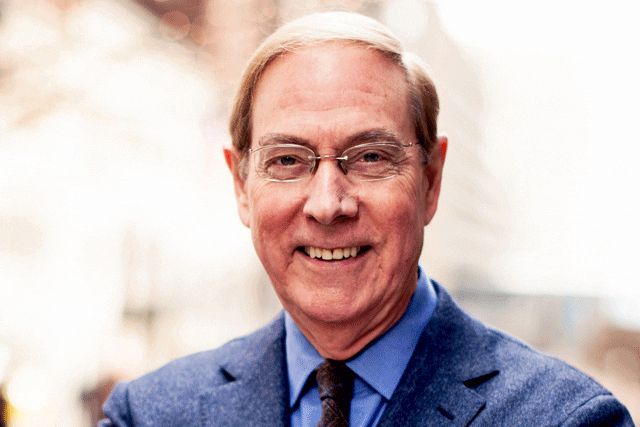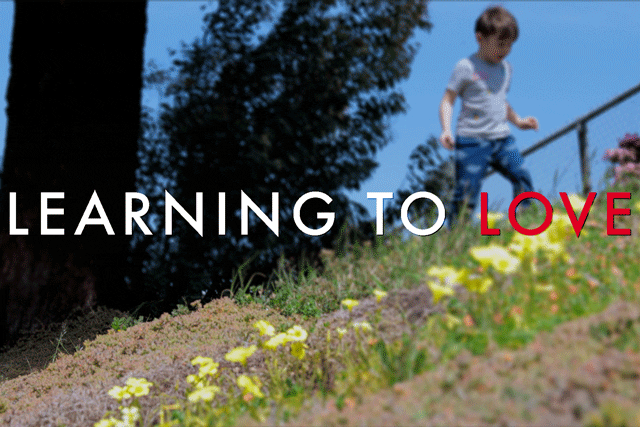Listen to this article
Listen to this article
Loading
Play
Pause
Options
0:00
-:--
1x
Playback Speed- 0.5
- 0.6
- 0.7
- 0.8
- 0.9
- 1
- 1.1
- 1.2
- 1.3
- 1.5
- 2
Audio Language
- English
- French
- German
- Italian
- Spanish
Open text
how to express love in the right language. dr. gary chapman appears on the do gooders podcast to share his theory and practical tips. americans are not living happily ever after. according to a study by the university of chicago, about 60 percent of respondents rated themselves “pretty happy” in their marriage—which leaves 40 percent of people less than fully satisfied. as dr. gary chapman says, “no single area of marriage affects the rest of marriage as much as meeting the emotional need for love.”. after years as a family counselor—and an academically trained anthropologist and senior associate pastor at a calvary baptist church in north carolina—he developed a system to effectively communicate love to the people closest to us. his book—“the 5 love languages: the secret to love that lasts”—has been translated into 50 languages and has sold more than 11 million copies worldwide. in it, chapman acknowledges that while falling in love is easy, staying in love takes work. and he provides a simple map to better expressing love exactly as the recipient needs. chapman recently appeared on the do gooders podcast, excerpted here, with new frontier publications editor in chief christin thieme to explore the five love languages and offers tips for better living in each one with our spouses, children and even at work. what makes “the 5 love languages” stand out from other relationship books? you know, i think because it deals with the deep emotional need that all of us have to feel loved by the significant people in our lives…i think it’s a simple concept that we have different love languages and if you want to feel loved, you’d speak my love language. if i want you to feel love, i’ve got to speak your love language. so why is love so important? i think almost everyone agrees that love is our deepest emotional need on the human plane. and if we feel loved by the significant people in our lives, we tend to fare well. a child for example, who feels loved by the parents, will grow up emotionally healthy, but if the child does not feel loved by the parents, the child will grow up with many internal struggles and typically in the teenage years, the child will go looking for love typically in all the wrong places. so i think because that is such a deep emotional need we have as humans, this is why the concept becomes so important because it helps us know how to effectively meet the emotional need for love. what’s your advice to couples when they have completely differing primary love languages? well, now there’s no question about it—that if your number one is their number five, that it’s the least important to them, it will be a learning curve for them to learn how to speak your language. but here’s the good news, you can learn to speak any of these languages as an adult, even if you did not receive them as a child. so if you found out, for example, that your spouse’s love language is acts of service, maybe growing up you were not given chores to do, your mother did everything, your daddy did everything, you’d never learn how to do acts of service. it will not be natural for you to do that. you’ll think, well that’s a wife’s responsibility or that’s somebody else’s responsibility. but you can learn how to take out trash. you can learn how to wash dishes, you can learn how to vacuum the floors. it’s just a matter of choosing to do it…you can learn to speak these languages, it’s a choice. and if you really want the person to feel loved, then you do make the effort to learn to speak their language. it’s a choice. that’s an important thing to remember. how did your faith shape your theory? you know, to me it’s my relationship with god that gives me the motivation to want to love. in fact, in the book i say, i’ve given you information on how to effectively love someone if you want to do it, but i can’t give you the motivation. my motivation came from my relationship with god, because remember what jesus said about himself, “i did not come to be served. i came to serve and to give my life a ransom for others.” so if we’re true followers of jesus, god gives us the desire to serve other people…but the motivation i think comes when our hearts are changed, because by nature we are selfish. by nature, we are looking out for ourselves. and when you get married and your basic attitude is selfishness, that is, “i want you to make me happy, and if you don’t make me happy, i’m out of here.” two selfish people will never have a good marriage. but two loving people who have the attitude of “i want to help you. i want to minister to you, i want to serve you.” they will have a good marriage. and then beyond our marriages, what is your advice for parents when it comes to love languages? well, i think first of all, learn the love language of each child and give heavy doses of the primary. now don’t hear me saying you only speak the primary. you give heavy doses of the primary language, you sprinkle in the other four because we want the child to learn how to receive and give love in all five languages, that’s the healthiest adult. but most of us did not have all five growing up. so we have to learn some of these as adults. but as a parent, learn the primary language of each child. if you have three children, it may be three different languages. you give them heavy doses of the primary, you sprinkle in the other four and your child will feel loved and they’ll grow up emotionally healthy. what is your top tip for somebody who’s wanting to better incorporate this into their lives? where should they start? i think first of all, it’s just expose yourself to the concept fully. then take the quiz. there’s a quiz in the back of each of the books or you can go online and take a free quiz at 5lovelanguages.com…it will help you discover your primary love language and then your secondary love language. take it seriously. don’t just say, “oh, that’s a nice idea.” no, take it seriously and begin to practice it in your relationships. it will change the emotional climate of a marriage, and a family atmosphere.
Open context player
Close context player
Plays:-Audio plays count
how to express love in the right language. dr. gary chapman appears on the do gooders podcast to share his theory and practical tips. americans are not living happily ever after. according to a study by the university of chicago, about 60 percent of respondents rated themselves “pretty happy” in their marriage—which leaves 40 percent of people less than fully satisfied. as dr. gary chapman says, “no single area of marriage affects the rest of marriage as much as meeting the emotional need for love.”. after years as a family counselor—and an academically trained anthropologist and senior associate pastor at a calvary baptist church in north carolina—he developed a system to effectively communicate love to the people closest to us. his book—“the 5 love languages: the secret to love that lasts”—has been translated into 50 languages and has sold more than 11 million copies worldwide. in it, chapman acknowledges that while falling in love is easy, staying in love takes work. and he provides a simple map to better expressing love exactly as the recipient needs. chapman recently appeared on the do gooders podcast, excerpted here, with new frontier publications editor in chief christin thieme to explore the five love languages and offers tips for better living in each one with our spouses, children and even at work. what makes “the 5 love languages” stand out from other relationship books? you know, i think because it deals with the deep emotional need that all of us have to feel loved by the significant people in our lives…i think it’s a simple concept that we have different love languages and if you want to feel loved, you’d speak my love language. if i want you to feel love, i’ve got to speak your love language. so why is love so important? i think almost everyone agrees that love is our deepest emotional need on the human plane. and if we feel loved by the significant people in our lives, we tend to fare well. a child for example, who feels loved by the parents, will grow up emotionally healthy, but if the child does not feel loved by the parents, the child will grow up with many internal struggles and typically in the teenage years, the child will go looking for love typically in all the wrong places. so i think because that is such a deep emotional need we have as humans, this is why the concept becomes so important because it helps us know how to effectively meet the emotional need for love. what’s your advice to couples when they have completely differing primary love languages? well, now there’s no question about it—that if your number one is their number five, that it’s the least important to them, it will be a learning curve for them to learn how to speak your language. but here’s the good news, you can learn to speak any of these languages as an adult, even if you did not receive them as a child. so if you found out, for example, that your spouse’s love language is acts of service, maybe growing up you were not given chores to do, your mother did everything, your daddy did everything, you’d never learn how to do acts of service. it will not be natural for you to do that. you’ll think, well that’s a wife’s responsibility or that’s somebody else’s responsibility. but you can learn how to take out trash. you can learn how to wash dishes, you can learn how to vacuum the floors. it’s just a matter of choosing to do it…you can learn to speak these languages, it’s a choice. and if you really want the person to feel loved, then you do make the effort to learn to speak their language. it’s a choice. that’s an important thing to remember. how did your faith shape your theory? you know, to me it’s my relationship with god that gives me the motivation to want to love. in fact, in the book i say, i’ve given you information on how to effectively love someone if you want to do it, but i can’t give you the motivation. my motivation came from my relationship with god, because remember what jesus said about himself, “i did not come to be served. i came to serve and to give my life a ransom for others.” so if we’re true followers of jesus, god gives us the desire to serve other people…but the motivation i think comes when our hearts are changed, because by nature we are selfish. by nature, we are looking out for ourselves. and when you get married and your basic attitude is selfishness, that is, “i want you to make me happy, and if you don’t make me happy, i’m out of here.” two selfish people will never have a good marriage. but two loving people who have the attitude of “i want to help you. i want to minister to you, i want to serve you.” they will have a good marriage. and then beyond our marriages, what is your advice for parents when it comes to love languages? well, i think first of all, learn the love language of each child and give heavy doses of the primary. now don’t hear me saying you only speak the primary. you give heavy doses of the primary language, you sprinkle in the other four because we want the child to learn how to receive and give love in all five languages, that’s the healthiest adult. but most of us did not have all five growing up. so we have to learn some of these as adults. but as a parent, learn the primary language of each child. if you have three children, it may be three different languages. you give them heavy doses of the primary, you sprinkle in the other four and your child will feel loved and they’ll grow up emotionally healthy. what is your top tip for somebody who’s wanting to better incorporate this into their lives? where should they start? i think first of all, it’s just expose yourself to the concept fully. then take the quiz. there’s a quiz in the back of each of the books or you can go online and take a free quiz at 5lovelanguages.com…it will help you discover your primary love language and then your secondary love language. take it seriously. don’t just say, “oh, that’s a nice idea.” no, take it seriously and begin to practice it in your relationships. it will change the emotional climate of a marriage, and a family atmosphere.
Listen to this article














